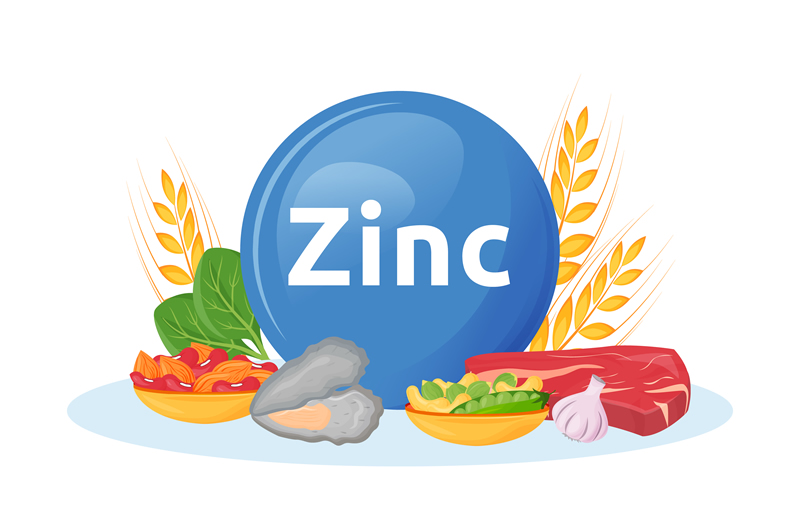Having a clear understanding of zinc deficiency and the probable signs and symptoms of having one is very vital. The knowledge of signs and causes can lead to treatment and prevention.
With the important role that Zinc plays in our human anatomy particularly in the immune system, cellular and humoral aspects as well as growth and repair, it is imperative that we be able to isolate signs and symptoms related to Zinc nutrition deficiency.
Zinc nutrition deficiency is the lack of zinc availability in a diet or the body not being able to absorb zinc efficiently. More often than not, it is widespread to young children, pregnant women, lactating and breastfeeding women, and the old. The fact is, the body doesn’t have any means of storing zinc for future use thus the need for daily intakes. Adequate supply is what’s needed as too much zinc can also pose a threat.
The signs of having zinc nutrition deficiency might be a challenge for many to identify onset since these are usual symptoms of every other illness. This is one reason why most are not aware that they have the deficiency. Zinc deficiency has been considered a global problem that 170,000 diarrhea deaths, 400,000 pneumonia-related losses, and 207,000 malaria cases are directly due to zinc deficiency.
These are just some of the common signs of possibly being zinc deficient:
- Anemia
- Deferred emotional maturity
- Developing of skin lesions and skin blemishes
- Diarrhea
- Failing eyesight
- Growth retardation
- Hanging nails and inflamed nail cuticles
- Hyperactiveness
- Increased allergic sensitivity
- Leaky gut
- Loss of appetite
- Memory impairment
- Photosensitivity
- Poor sense of smell and taste
- Pre-menstrual syndrome
- Reduced fertility leading to impotence
- Reduced neurological function
- Slow wound healing
- Thinning of hair
- Toxemia for the pregnant
- Weakening of the immune system
- White flecks on nails or white bands
If you have any of the signs above, it is best to get with your doctor for diagnosis and professional instruction. Self-diagnosis and self-medication are risky and life-threatening. A full blood test will determine and confirm the extent of your zinc deficiency in any case. Vigilance on changes in your body is important as well as being pro-active in knowing what’s going on.

With awareness of the symptoms, we can take the necessary preventive measures to ensure that we have the daily needed Zinc resource for our body. The table below should serve as a guideline for the recommended dietary allowances for Zinc.
| Age | Male | Female | Pregnant | Lactating |
| 0-6 months old | 2 mg | 2 mg | ||
| 7-12 months old | 3 mg | 3 mg | ||
| 1-3 years old | 3 mg | 3 mg | ||
| 4-8 years old | 5 mg | 5 mg | ||
| 9-13 years old | 8 mg | 8 mg | ||
| 14-18 years old | 11 mg | 9 mg | 12 mg | 13 mg |
| 19 years old and older | 11 mg | 8 mg | 11 mg | 12 mg |
Treatment for zinc is readily available and is very much a controllable factor. The greater challenge is not the remedy but knowing that you are affected.
© 2021 by NewsBucket.org, an LiVenture.
All rights reserved. No part of this document may be reproduced or transmitted in any form or by any means,
electronic, mechanical, photocopying, recording, or otherwise, without prior written permission of LiVentures.




